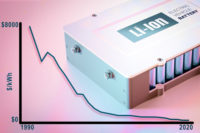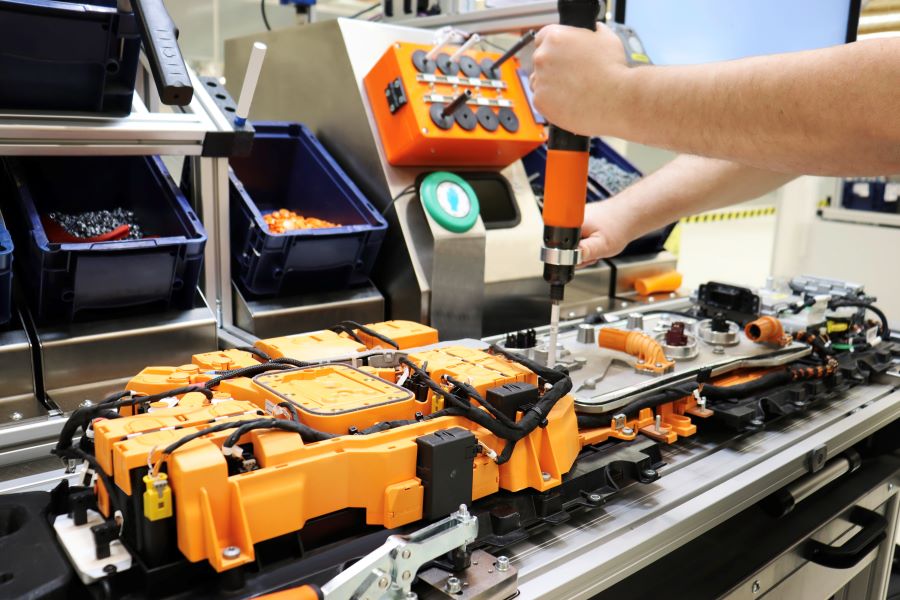NEW YORK—Achieving ambitious EV adoption targets will require massive growth in battery manufacturing and raw material supply chains, claims a new report by ABI Research. However, despite current challenges, global production should increase dramatically by the end of this decade.
“Battery cost and production volume are the key barriers to adoption for EVs,” says Dylan Khoo, electric vehicles industry analyst at ABI Research. “The most important technologies are, therefore, those that make batteries cheaper or easier to manufacture at scale.
“Revolutionary technologies, such as solid-state batteries, promise improved ranges and reduced charging times, generating much media attention, but are too expensive and difficult to manufacture,” notes Khoo. “Battery developments this decade will focus on evolutionary improvements on current lithium-ion batteries.”
According to Khoo, the EV battery boom will put pressure on suppliers of raw materials. From 2022 to 2030, there will be a 5.3-fold increase in demand for lithium and a 3.2-fold increase in demand for cobalt for batteries. “Reducing the consumption of these critical minerals is an essential goal for battery manufacturers, particularly cobalt, due to its volatile supply and unethical practices involved in its mining,” he explains.
Khoo predicts that the average cobalt content of EV batteries will decrease 44 percent by 2030. Improved pack assembly techniques, such as cell-to-pack (C2P) technology, will increase the overall energy density of cobalt-free lithium iron phosphate (LFP), allowing them to be used in more applications. Cobalt content can also be reduced by increasing overall energy density with high-nickel nickel manganese cobalt (NMC) cathodes.
“There are EVs with long ranges and EVs that can charge quickly, but there are no EVs that cost the same as their fossil fuel counterparts,” says Khoo. “Evolutionary improvements over current lithium-ion battery technology will be essential to reduce the cost of EVs and achieve industrywide electrification targets.
“Solid-state batteries are unlikely to significantly impact this decade, because their adoption would require changes in cell design and manufacturing, unlike improvements on existing lithium-ion battery technology,” adds Khoo.




